
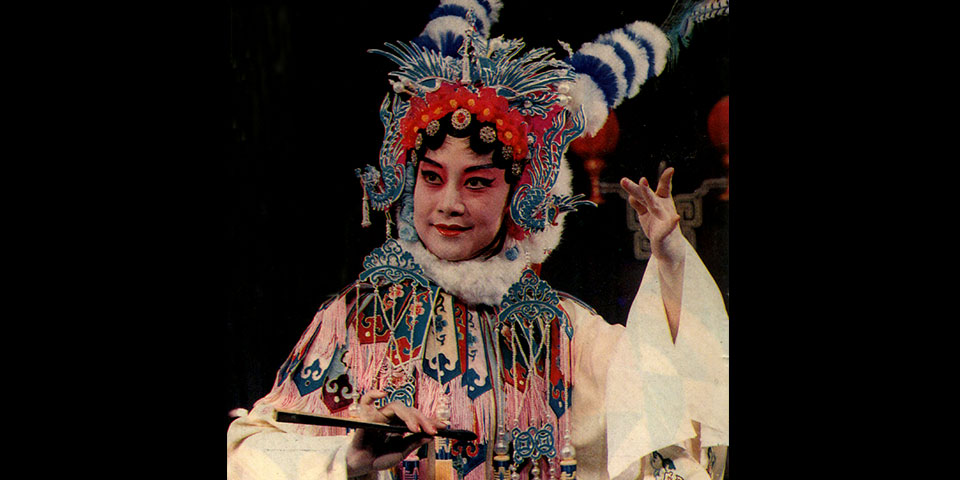
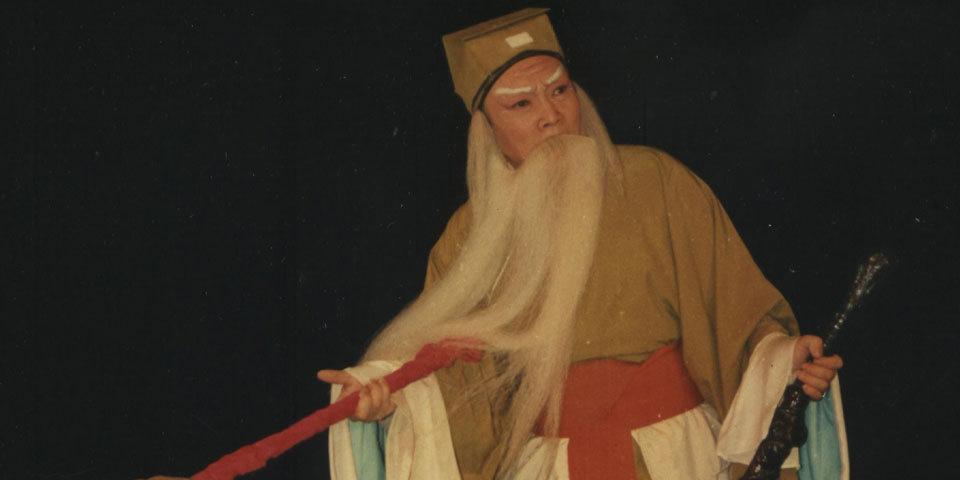
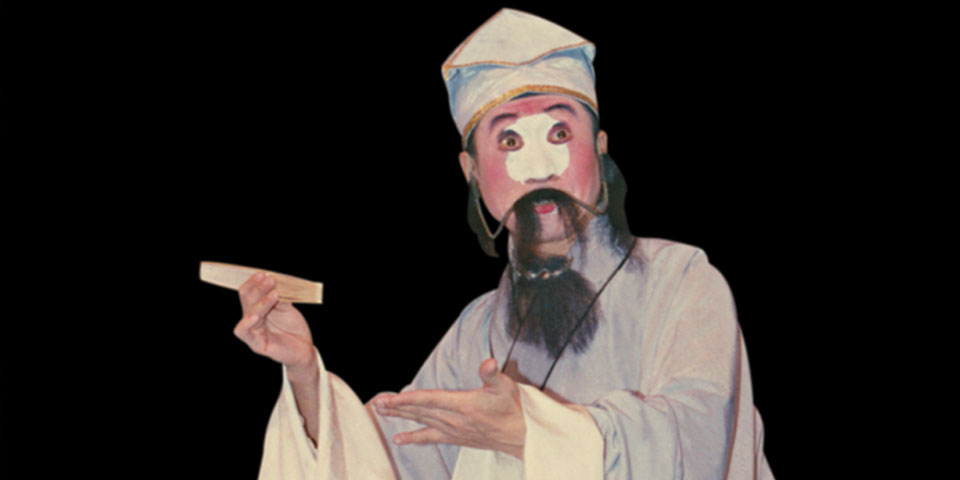
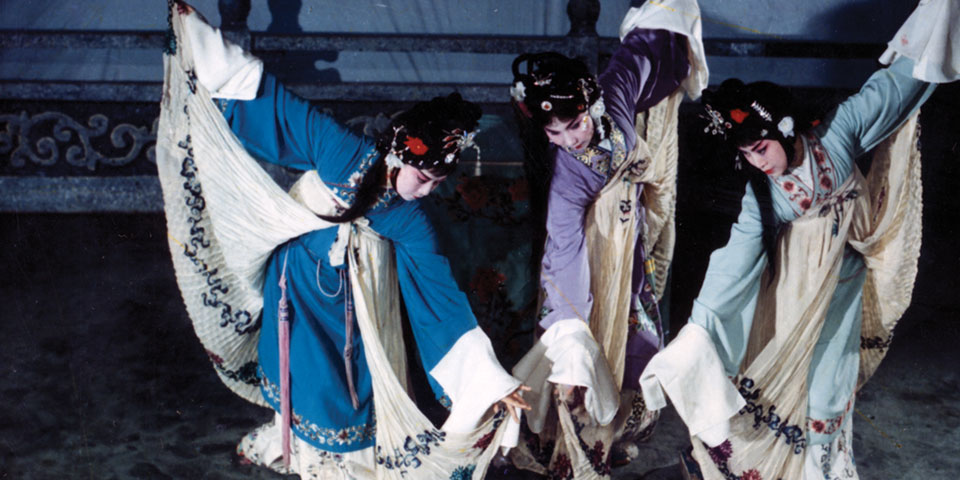
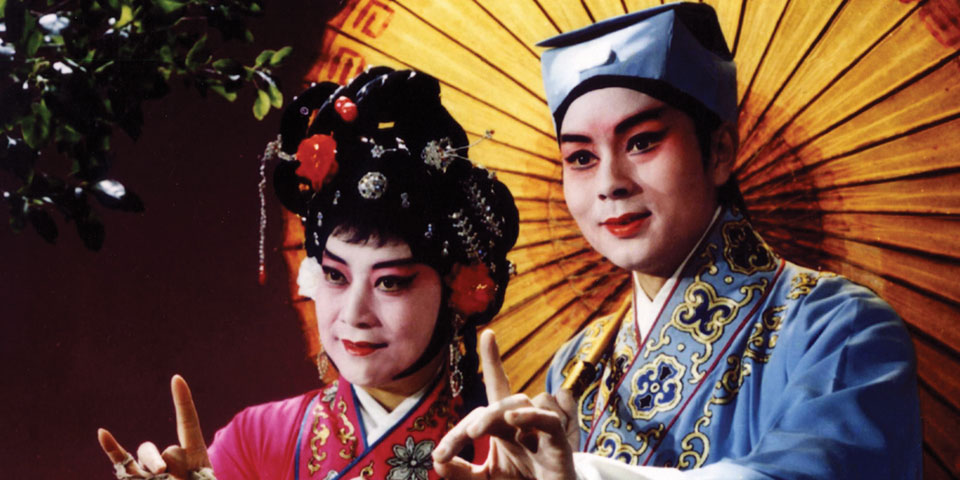
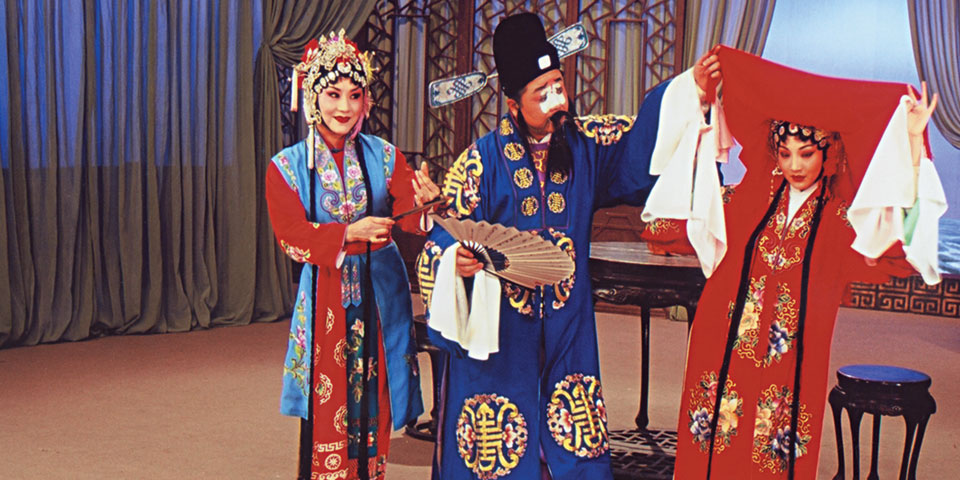
Xiang Opera Theatre of Hunan
Zuo Dafen
Zuo Dafen is one of the most famous names in Hunan Opera today. A National Class One Performer, Zuo is also a winner of the 6th Plum Blossom Award for Chinese Theatre and the 8th Wenhua Performance Award of China. She began her training at the age of eleven, specialising in huadan (flirtatious female roles). She completed her training at the Hunan Arts School where she benefitted from the coaching of many veterans in the genre. She sings with rich, rounded tones, and is able to portray different characters with insight and vividness.
Wang Yongguang
Wang Yongguang is a famous artist in Hunan Opera, a National Class One Performer and winner of the 8th Plum Blossom Award for Chinese Theatre and the 1st Wenhua Performance Award of China. He began his training at the age of nine, specializing in kaoba laosheng (old man in full armour roles). He completed his training at the Hunan Arts School. With his crisp delivery and robust tone of singing, he is considered a major exponent of Xu Shaoqing’s stylistic school.
Tang Bohua
Tang Bohua is a famous artist in Hunan Opera, a National Class One Performer as well as a winner of the 8th Wenhua Performance Award. He began his training at the age of eleven, specializing in wenwu chou (civil, military comic roles). He completed his training at the Hunan Arts School. An actor with solid groundwork and comprehensive performing techniques, Tang has won a popular following for his vivid interpretations of many different comic roles.
Wang Yangjuan
Wang Yangjuan is a National Class One Performer and winner of the 17th Plum Blossom Award for Chinese Theatre. Born into a family of Chinese opera artists and now considered a major exponent of their style, she was initiated into the art form at a very young age, with a specialism in wenwu huadan (civil, military flirtatious female roles). Wang has a sweet voice and a solid groundwork in performing techniques.
Chen Aizhu
A National Class-One Performer and a recipient of the Hibiscus Award (Performance for Theatre), Chen Aizhu began her training at the age of fourteen specializing in zhengdan (virtuous woman role). Her singing is soft and rich, her acting solid and direct, she is noted for her in-depth interpretation of roles. Her representative roles include The Story of the Lute, The Story of Li Sanniang and Tale of the Golden Seal.
Li Kaiguo
A National Class-One Performer and a recipient of the Hibiscus Award (Performance for Theatre), Li Kaiguo began learning this arts at the age of eleven specializing in xiaosheng and laosheng (civilmale and old male roles). He is a graduate of Hunan Arts School and has been coached by Kunqu maestro Yu Zhenfei. With handsome stage persona and crisp voice, he is noted for his enunciation and singing skills as well as defined levels of performance. His representative works include Worshipping the Moon, The Story of the Lute and Tale of the Golden Seal.
Pang Huanli
Pang Huanli is a National Class One Performer. She began her training in zhengdan (virtuous female roles) at the age of twelve, and is a true exponent of the Hunan Opera virtuoso, Pang Linong’s stylistic school. She is noted for her insightful interpretations of roles and in particular, her vocal skills. She was the winner of the 4th Hibiscus Award - Performance for Theatre.
Zhu Mi
Zhu Mi is a National Class One Performer Hunan Arts School. She began her training in huadan (flirtatious female roles) at the age of eleven, and later completed her training at the Hunan Arts School. She has benefitted from the coaching of various virtuosi and veteran actors. Zhu is noted for her pretty stage persona and graceful acting. Some of her best known works include Princess Taiping, The Dyke Breach Disaster, Mountain Demon, etc. She was the winner of the 9th Hibiscus Award - Performance for Theatre.
|
|
||||||||||||||
| • With Chinese and English surtitles. • Please refer to the ‘Extension Activities’ page for details of other extension activities. • Each performance lasts approx. 2 hours and 30 minutes with a 15-minute intermission. |
|||||||||||||||
Click here to download the transcript.





